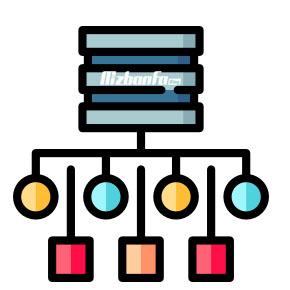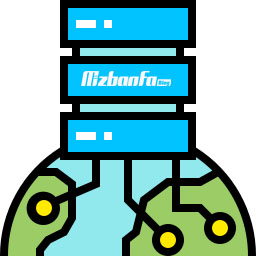What is a web server and how does it work?
Today, many businesses use the unlimited world of the Internet to improve their business conditions. For this, it is enough to have a website and manage it according to the existing instructions. But to have a website, a series of requirements are needed, one of the main of which is the purchase of a suitable dedicated server . The server is a space for storing information and hosting websites. But what is a web server and what are its types? How to identify and choose the best web server? In this article from Fa Host knowledge base , we decided to mention everything about the web server and tell you what a web server is and introduce you to the best web server by reviewing different web servers such as nginx web server or litespeed web server.
 The topics that will be discussed in this article are as follows:
The topics that will be discussed in this article are as follows:
- What is a web server?
- How does the web server work?
- Types of web servers
What is a web server?
The web is used to manage the requests sent from the site. In fact, the server stores the contents of the websites such as text, photos, videos and other information and provides them to the users, but the task of the web server is different. The server is between the site, the user and the browser. In fact, the user gives his request to the browser and the browser processes this request and sends it to the server. The server has the task of analyzing this sent request and is actually like a translator between the server and the user’s browser.
The Internet is a huge source of information in all areas of life and is very easy to work with. All you have to do is enter the internet search space and get any information you want with a simple search. All these works are done in the shortest possible time. For this reason, knowing the processes behind it can be very fascinating. If you are one of those who have often asked yourself how and in what form this information is provided to you, reading this article can be very useful for you. Because in this article we are going to explain all the existing processes to you in a comprehensive way.
How does a web work?
The web responds to the request of the users of a site in two ways:
- The visitor searches for the desired URL and the server responds to him based on the corresponding request.
- The web server communicates with the script and debugger in order to respond.
Key points you should know about the server:
- When the visitor sends a request to go to a certain site, the server searches for the requested page. If it can find the desired page, it sends this information to the user’s browser in HTTP format.
- If the desired page is not found by the web , the server sends a 404 error to the requester.
The above process includes 4 main steps:
- Detection of the IP address of the domain
- The user enters the desired address in the browser and sends it to the server
- Check user request by web server
- Responding to the request and displaying the relevant page or file in the user’s browser
1. Obtaining the IP address from the domain name
When a user enters the address of a page in his browser, a request is sent to the server. But:
- How does the browser find out on which server this information is located?
- Which web server should they request information from?
In the first step, web browsers must identify the IP address of the domain. In fact, the IP address is the same address that is provided to you as the IP server from the hosting side at the beginning of the work when you prepare the host or server. The browser used obtains the IP address by searching its cache or by using DNS. Then it detects the direction of your site’s information.
2. Write the complete URL of the desired page
Now that the browser can recognize your IP address, it’s time to forward the user’s request to the web .
3. Responding to the request by the web server
In the third step, the web server receives and interprets the request sent by the browser. Naturally, this request should be processed and a response should be considered and sent to the browser again. But how does the web server respond to the browser’s request?
 🟢🔵 The web server receives and interprets the request from the browser, then takes the requested files and information from the server and translates it, and responds to the request made by the browser by sending the desired pages. If there are no desired pages or any error occurs, an appropriate error message will be sent with that error. For example, you may encounter a 404 error when trying to view a non-existent page. This error is displayed when the requested page no longer exists on the hosting server.
🟢🔵 The web server receives and interprets the request from the browser, then takes the requested files and information from the server and translates it, and responds to the request made by the browser by sending the desired pages. If there are no desired pages or any error occurs, an appropriate error message will be sent with that error. For example, you may encounter a 404 error when trying to view a non-existent page. This error is displayed when the requested page no longer exists on the hosting server.
🟢🔵 Another common error that is seen is error 401. This error is also shown when you cannot access the desired data due to incorrect validation. In this case, you may have entered the username, password, or other such things incorrectly
